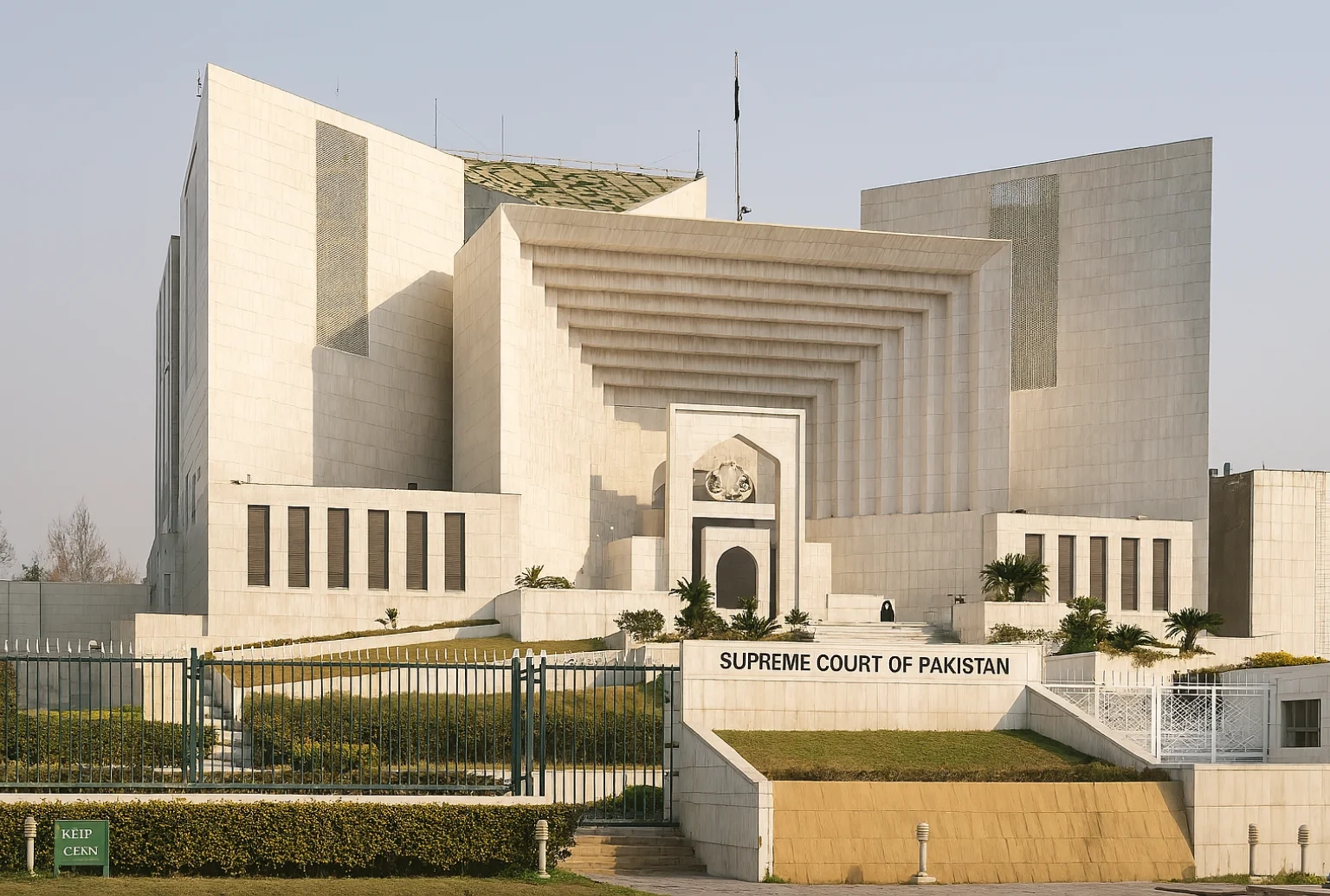IHC Judges Challenge 27th Amendment, Supreme Court Objects

The controversy surrounding Pakistan’s 27th Constitutional Amendment continues to deepen. Four judges of the Islamabad High Court (IHC) filed a petition against the amendment, but the Supreme Court has raised objections, directing the matter to a newly established judicial forum.
The Petition
The petition was submitted by Justice Mohsin Akhtar Kayani, Justice Babar Sattar, Justice Saman Rifat Imtiaz, and Justice Sardar Ijaz Ishaq Khan. These judges were also among the six who, in March 2024, wrote to the Supreme Judicial Council alleging interference by intelligence agencies in judicial affairs and harassment of judges.
Supreme Court Registrar’s Objection
The Supreme Court’s Registrar Office has objected to the petition, stating that the correct forum to challenge constitutional amendments is the Federal Constitutional Court (FCC). This objection highlights the shifting judicial landscape following the passage of the 27th Amendment.
Background of the Federal Constitutional Court
The Federal Constitutional Court was created through the 27th Amendment in November 2025 as Pakistan’s first dedicated forum for constitutional disputes. It now holds exclusive jurisdiction over constitutional interpretation and federal–provincial conflicts, while the Supreme Court focuses mainly on civil and criminal appeals. Judges are appointed through the Judicial Commission of Pakistan, with retirement age set at 68, and Parliament determines the number of seats. Justice Aminuddin Khan was appointed as the first Chief Justice of the FCC, which quickly signaled its active role by issuing a stay order in a case involving the Khyber Pakhtunkhwa government. This institutional change explains why the Supreme Court’s Registrar redirected the IHC judges’ petition to the FCC.
Background of the Amendment
The 27th Amendment has faced strong criticism since its approval. Senior Supreme Court judges Justice Mansoor Ali Khan and Justice Athar Minallah resigned in protest, calling the amendment a “serious attack on the Constitution of Pakistan.” They argued that it made the judiciary subordinate to the government and undermined constitutional democracy.
Judicial Concerns
Earlier, both judges had written letters to the Chief Justice of Pakistan expressing their reservations. Justice Mansoor Ali Shah, the senior‑most judge after Chief Justice Yahya Afridi, emphasized that the amendment struck at the independence of the judiciary. Their resignations underscored deep divisions within the higher judiciary over the balance of power between Parliament and the courts.
Political Response
The government has dismissed these criticisms. Prime Minister Shehbaz Sharif’s advisor Rana Sanaullah accused the judges of pursuing political and personal agendas, insisting that they had no privilege to challenge parliamentary decisions or criticize political matters.
Implications
This confrontation between the judiciary and the government underscores the fragile balance of constitutional authority in Pakistan. The Supreme Court’s objection to the IHC judges’ petition raises questions about how constitutional amendments should be challenged, while the resignations of senior judges highlight growing unease about political influence and judicial independence.

